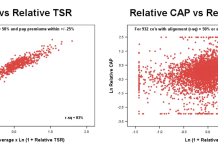Younger homeowners are increasingly opting for extended repayment periods that stretch into retirement for their mortgages
Recent data from the Bank of England reveals a concerning trend that hundreds of thousands of new mortgages issued in the past three years have end dates extending beyond the state pension age.
The figures, obtained through a Freedom of Information request by Sir Steve Webb, a former pensions minister turned partner at pensions consultancy LCP, show a shocking trend reported by the BBC.
Longer mortgage terms into retirement
In the final quarter of 2023, 42% of new mortgages had terms exceeding the state pension age. This marks a significant increase from 31% in the same period two years prior.
The appeal of longer mortgage terms is clear, particularly for the under-30 demographic. Over two years, the number of under-30s taking out these mortgages has more than doubled, while those under 40 saw a 30% increase, Sky News reported.
This surge coincides with a challenging mortgage market indicated by higher interest rates, encouraging young homeowners to get extended repayment periods to ease financial strain.
Cost of living and interest rates
Young homeowners, who are already competing with rising living costs and economic uncertainty, now face the possibility of carrying mortgage debt into their retirement years.
Sir Steve Webb warns of the potential consequences, expressing concern that borrowers may resort to dipping into their pension savings to settle mortgage debts in a worst-case scenario.
The impact is not confined to the younger demographic alone. Individuals in their 30s, 40s, and even 50s are also increasingly opting for mortgages with extended maturity dates, showing the widespread challenges set by rising housing costs and interest rates.
In the final quarter of 2023, individuals aged 30 to 39 accounted for over 30,000 new mortgages with terms extending beyond the state pension age, while those aged 40 to 49 comprised over 32,000 of these mortgages.
The rise in mortgage rates, paired with the Bank of England’s efforts to combat inflation, has intensified the appeal of longer-term loans. For many, opting for extended repayment periods offers a way of managing monthly expenses amidst economic uncertainty. However, the long-term ramifications remain uncertain.











